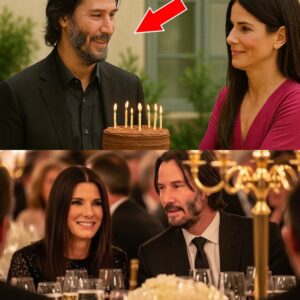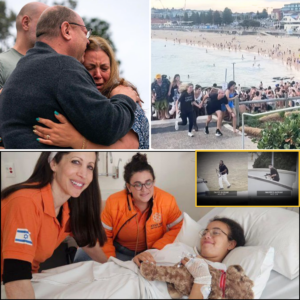In a bold yet deeply divisive artistic move, Charlotte rapper DaBaby has unleashed a torrent of backlash with the release of his music video for “Save Me,” a track that shockingly reenacts the brutal stabbing death of 23-year-old Ukrainian refugee Iryna Zarutska on a Charlotte light rail train. Premiered on YouTube on September 16, 2025, the nearly four-minute visual has amassed over 700,000 views in under 48 hours, but not without igniting accusations of insensitivity, exploitation, and outright mockery. Social media users, family advocates, and cultural commentators have flooded platforms with pleas like “Stop, it’s not funny to make a music video,” decrying the video’s graphic dramatization of a real-life tragedy that unfolded just weeks ago. As calls to pull the video grow louder, DaBaby’s attempt at a “tribute” has instead amplified the pain of Zarutska’s loved ones, thrusting the incident back into the national spotlight and reigniting debates about the ethics of art in the face of grief.
The video opens with 30 seconds of raw, unfiltered surveillance footage from the Charlotte Area Transit System (CATS) Lynx Blue Line, capturing the final moments of Zarutska’s life on August 22, 2025. In the grainy clip, the young woman—fresh off a shift at Jupiter’s Pizzeria, still in her khaki pants and dark polo shirt—boards the train at Scaleybark station around 9:46 p.m. She sinks into a seat, her face illuminated by the glow of her phone as she scrolls absentmindedly, oblivious to the figure in a red hoodie who slips in behind her. The footage abruptly cuts just as 34-year-old Decarlos Dejuan Brown Jr., the alleged perpetrator, rises and brandishes a folding knife, lunging forward in an unprovoked frenzy. Zarutska’s hands fly to her throat as the blade strikes multiple times, her body slumping in a pool of blood while stunned passengers remain frozen. The screen fades to black, leaving viewers with the stark reality: no heroes, no intervention, just a life extinguished in seconds.
What follows is DaBaby’s—real name Jonathan Lyndale Kirk—reinterpretation, a stylized reenactment filmed on the very same light rail route that has become a symbol of urban vulnerability. Actors portray Zarutska and Brown with eerie precision: the actress in an identical pizzeria uniform, her expression mirroring the victim’s weary post-shift fatigue; the attacker in a matching red hoodie, his movements jerky and menacing. DaBaby, clad in a black hoodie, positions himself as the silent observer seated nearby, his verses cutting through the tension like a lifeline. “Do you think you can save me? Think you could save me like your God or something?” he raps in the chorus, his delivery laced with a mix of defiance and despair. As the knife arcs toward the actress’s neck, DaBaby springs into action in a fictional twist—grabbing the assailant’s wrist mid-strike, wrestling him away, and handing him off to arriving security guards in uniforms from Professional Security Services. The scene ends with DaBaby staring into the camera, his diamond-encrusted watch catching the light as he mutters, “Man, we can’t save ‘em. You know what I’m sayin’? I might be one of them.” A final frame flashes a screenshot of Zarutska’s GoFundMe page, now surpassing $450,000 in donations for her grieving family.
DaBaby, the 33-year-old Charlotte native whose breakout hit “Suge” topped charts in 2019, captioned the YouTube upload simply: “A Dedication to Iryna Zarutska.” In an accompanying Instagram Reel, he urged followers with “#DontMissTheMessage,” framing the video as a meditation on mental health, bystander apathy, and the thin line between savior and survivor. Lyrics delve into raw introspection: reflections on street life, untreated trauma, and the systemic failures that allow violence to fester unchecked. “We out here tryna save everybody but ourselves,” he spits in one verse, a nod to Brown’s documented history of mental health struggles and 14 prior arrests for crimes ranging from armed robbery to larceny. For DaBaby, a product of Charlotte’s West Side who lost his brother to gun violence in 2022, the track feels personal—a hometown lament for a city where public transit, once a beacon of accessibility, now evokes fear. Yet, even supporters acknowledge the risk: by inserting himself as the hero, DaBaby shifts the narrative from collective failure to individual triumph, a choice that’s rankled many as self-aggrandizing fantasy.
The viewer outrage was swift and unrelenting, erupting across X (formerly Twitter), TikTok, and Instagram like a digital wildfire. Within hours of the premiere, hashtags such as #StopTheReenactment, #JusticeForIryna, and #CancelDaBaby trended globally, amassing millions of impressions. One viral X post from influencer @404Breezy, viewed over 100,000 times, read: “DaBaby reenacting a woman’s murder for a music video? Stop, it’s not funny to make a music video out of someone’s last breaths. This is beyond disrespectful.” TikTokers stitched reaction videos, their faces contorted in horror as they paused on the knife’s glint, with captions like “Trauma porn disguised as tribute—who hurt you, DaBaby?” Ukrainian diaspora groups, still raw from the war’s exodus, amplified the fury; a thread from @RazomForUkraine garnered 50,000 likes, calling the video “a grotesque commodification of our sister’s suffering—she fled bombs for this?” Families of other transit victims, from the 2023 D.C. Metro shooting to the 2024 NYC subway chokehold death, echoed the sentiment, with one relative tweeting: “My loved one’s pain isn’t your plot twist. Delete this.”
Critics zeroed in on the video’s graphic intimacy, arguing it forces viewers—and potentially Zarutska’s family—to relive the horror in high definition. The family, through spokesperson Olena Mykola, had only viewed the full surveillance footage days before the video’s drop, a detail that deepened the wound. “Iryna came to America for safety, not to become a prop in someone’s redemption arc,” Mykola said in a statement, her words rippling through media outlets. The reenactment’s fidelity—the uniform, the hoodie, the exact seating—felt invasive, a voyeuristic echo that blurred art and autopsy. On Reddit’s r/Charlotte subreddit, a megathread titled “DaBaby’s ‘Tribute’ is Straight-Up Trauma-Bait” ballooned to 5,000 comments, with locals decrying the unauthorized filming on CATS trains: “He shut down the Blue Line for this? Riders deserve better than his ego trip.” GLAAD, still smarting from DaBaby’s 2021 homophobic Rolling Loud rant, weighed in sharply: “Exploiting violence against women isn’t activism—it’s auditioning for irrelevance.”
The backlash isn’t isolated; it’s layered atop DaBaby’s checkered history, painting a portrait of an artist whose impulses often outpace his judgment. His 2021 festival meltdown, where he spewed misinformation about HIV and queer lives, cost him Lollapalooza slots, Dua Lipa collabs, and a BoohooMan deal, plummeting streams by 90%. A 2022 bowling alley brawl led to assault charges (later dropped), and his 2018 Walmart shooting self-defense acquittal still lingers like a shadow. Even in Russia for a 2025 gig amid UMG’s Ukraine boycott, he dodged sanctions talk. “Save Me” arrives as a Hail Mary for a career in flux—his last album, Blame It on Baby (2022), underperformed, and tour dates like a September New Orleans show were scrapped over low sales. Detractors see clout-chasing: “Views over victims,” one X user sneered, noting the 700K spike. Yet, a vocal minority defends the intent, with fans praising the GoFundMe boost and mental health plea. “This gave me chills—DaBaby’s speaking for the voiceless,” tweeted @CharlotteRealTalk, echoing a Ukrainian-American’s tearful post: “As her countryman, I cried. Thank you for the awareness.”
Zarutska’s story, meanwhile, transcends the video’s controversy, a heartbreaking emblem of the immigrant dream deferred. Born in Kyiv in 2002, she graduated from Synergy College with a degree in art restoration, her passion for painting and sketching a quiet rebellion against the gray Soviet-era blocks of her youth. The 2022 Russian invasion shattered that world; Zarutska huddled in bomb shelters with her mother, Olena; sister; and brother, the family’s heart fracturing as her father remained behind, trapped by martial law. “We thought America was the land of second chances,” Olena recounted in a Kyiv interview, her voice steady but eyes hollow. Arriving in Huntersville, North Carolina, in August 2022, Zarutska threw herself into reinvention: English classes at a community college, barista gigs, and her pizzeria job where her warm smile earned tips and tipsy compliments. By spring 2025, she’d mastered driving—her boyfriend’s gift of freedom—and dreamed of veterinary school, her sketches now filled with American motifs: sunsets over Lake Norman, stray cats she’d feed on walks.
That dream curdled on a routine commute home. Brown, a Charlotte native with untreated schizophrenia and a rap sheet spanning decades, boarded fare-free, his eyes wild from a fresh jail release on a larceny charge. The attack was lightning: 10 seconds of savagery, Zarutska’s final plea a gurgle as she bled out. Brown fled but was nabbed blocks away, knife dripping, now facing federal murder charges under transit safety laws. The footage, leaked within hours, exploded into a political maelstrom. White House Press Secretary Karine Jean-Pierre blamed “soft-on-crime Democrat policies,” while Trump allies like Laura Loomer decried “anarchist cities,” falsely claiming racial inaction (cameras showed diverse shock). Kyiv’s diplomats mourned quietly: “She escaped war’s blades for street knives—a cruel irony.” Charlotte Mayor Vi Lyles pushed back, touting a 15% crime drop and $50 million in mental health funding, but the divide widened, with protests at CATS stations demanding armed guards.
For Zarutska’s family, the video compounds an already unbearable grief. Olena, now in North Carolina with her surviving children, viewed the surveillance in a sterile precinct room, her sobs echoing off cinderblock walls. “Why show her like this? She was an artist, not a victim on repeat,” she told reporters, clutching a sketchbook of Iryna’s final drawings—ethereal birds in flight, symbols of escape. The GoFundMe, started by uncle Mykola Zarutskyi, swells with messages from strangers: “Your daughter’s light lives on.” A memorial service in Huntersville drew 500, blending Ukrainian hymns with American gospel, her casket adorned with sunflowers and paintbrushes. Mykola, a Kyiv engineer who fled the draft, vowed: “We’ll fight for transit justice, not videos that profit from pain.”
As September 19, 2025, dawned, DaBaby remained mum, his feeds a fortress of disabled comments and reposted fan art. Interscope Records, his label since 2019, issued a tepid defense: “Jonathan’s work channels community truths—we stand by his vision.” But whispers of internal fallout swirl: sources say execs urged a delay, citing the 2021 fallout’s scars. CATS condemned the shoot as “unauthorized,” fining the production $10,000 and vowing drone surveillance for future filming. On X, the discourse fractures further—defenders hail “brave storytelling,” while detractors demand boycotts, with petitions to YouTube hitting 20,000 signatures.
This saga lays bare hip-hop’s tightrope: where does provocation end and predation begin? DaBaby’s “Save Me” sought salvation through simulation, but in rewriting Zarutska’s end, it immortalized her suffering anew. For a family adrift in a foreign land, the real plea echoes in empty train cars: honor the lost by safeguarding the living, not scripting their ghosts. As Charlotte’s rails hum on, Iryna’s absence lingers—a silent chorus demanding more than a beat, more than a hero’s pose. In the words of one grieving fan: “Save us from the spectacle. Just save us.”





